What election losers tell us about Indian democracy
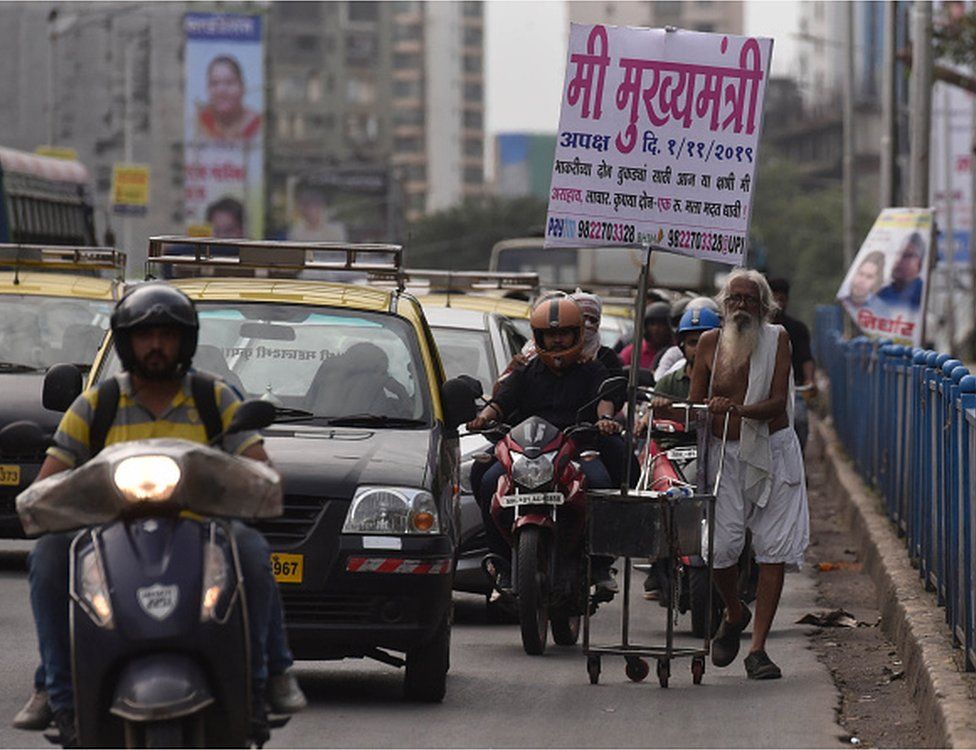 Image source, Getty Images
Image source, Getty ImagesIn the past six decades, 2,751 political parties have contested parliamentary and state elections in India.
And the number of parties which have contested general elections - where nearly a billion voters cast their ballots in millions of polling stations - has jumped from 29 in 1962 to 669 in 2019.
That's nearly a rise of 2,200%.
But the number of parties that actually managed to win at least one seat in a general election has increased by only 71% - from 21 in 1962 to 36 in 2019.
Now consider this.
Only six political parties have contested all 15 general elections held since 1962. Twenty five parties have contested at least 10 of the elections. And a third of them have contested only one election.
These are some of the striking numbers available in a new database called Political Parties of India compiled by Ashoka University's Trivedi Centre for Political Data (TCPD).
A plethora of political parties usually points to a healthy appetite for democratic participation in what is described as the world's biggest democracy.
But look closely, and some interesting trends emerge.
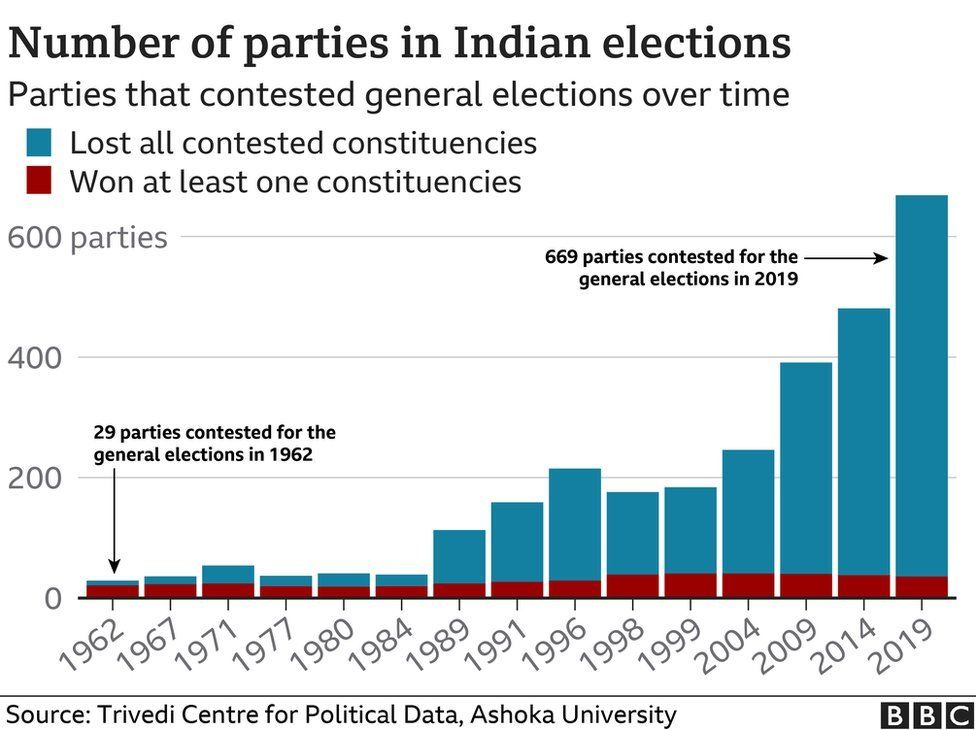
"We see that most of these many parties are actually made up of two or three people. There are some which are just one-person parties. And then there are so many parties registered with the election authorities and who do not contest," says Gilles Verniers, a professor of political science and co-director of TCPD at Ashoka University.
About 1,406 parties - 91% of those that have contested the general elections - have never won a single seat.
Together they have fielded 9,809 candidates so far - all lost.
A total of 41 parties have contested at least five elections and not won a single seat.
One such example is a party called Amra Bangali that fielded more than 100 candidates in five states across nine general elections and 26 state elections and failed to win a single seat.
Another party, Shoshit Samaj Dal, contested in 22 state assembly elections, mainly in Uttar Pradesh and Bihar, and fielded 353 candidates. Only three have won.
India also sees a lot more independent candidates - those not affiliated to any party - contesting elections, but only few win.
Between 1962 and 2019, the number of independent candidates contesting for general elections leapt by 622% while the number of independent candidates actually getting elected dropped by 80%.
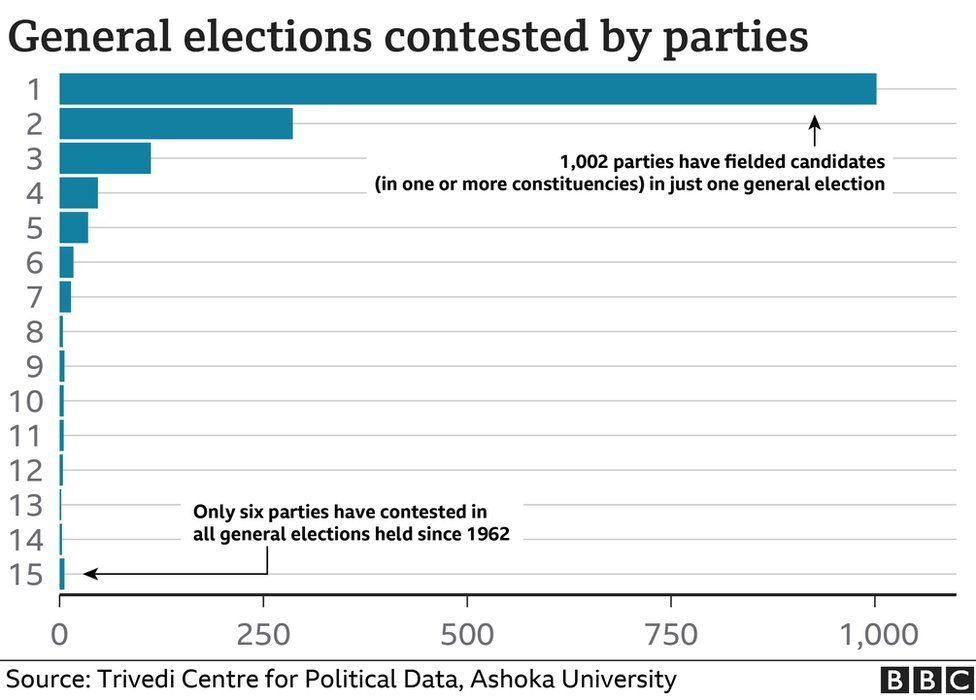
A total of 3,460 independent candidates took part in 2019 polls but only four of them won. One of the unsuccessful candidates was 75-year-old Vijayprakash Kondekar, who lost his 25th election. "I just want to show people that party politics is not the only way in the largest democracy in the world," he told the BBC then.
The sharp rise in political parties could have to do with the myriad incentives to join politics in India, say researchers.
"An element of taking a chance by standing in an election is something particular to India. Many people see it also as a civic right. Contesting elections often helps boosting the image and social status of the contestant," Prof Verniers says.
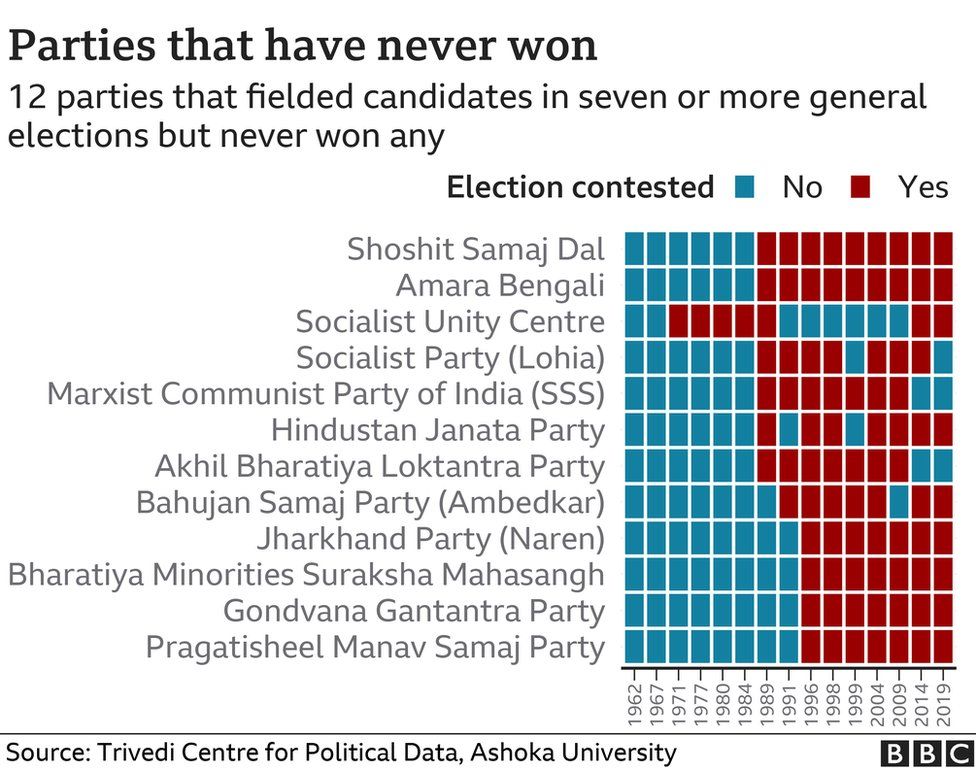
"Political parties occupy the public space. There's very little connection between civil society, political parties and the government in India. People feel that to bring about change, you need to contest elections."
The proliferation of parties, say experts, also has to do with fragmentation of India's political system and the winner-takes-it-all, first past the post (FPTP) system where the candidates who receives the most votes in a constituency wins the seat.
Then there are overwhelming material incentives.
Political parties are also floated to launder money. For one, they enjoy exemption from income tax. Second, the controversial electoral bond - a political funding mechanism - enables undisclosed donors to funnel money into parties, old and new.
Only registered political parties which have secured at least one per cent of the popular vote in general or state elections are eligible for such donations.
In April 2019, India's Supreme Court sought details from political parties about donors who were buying electoral bonds.
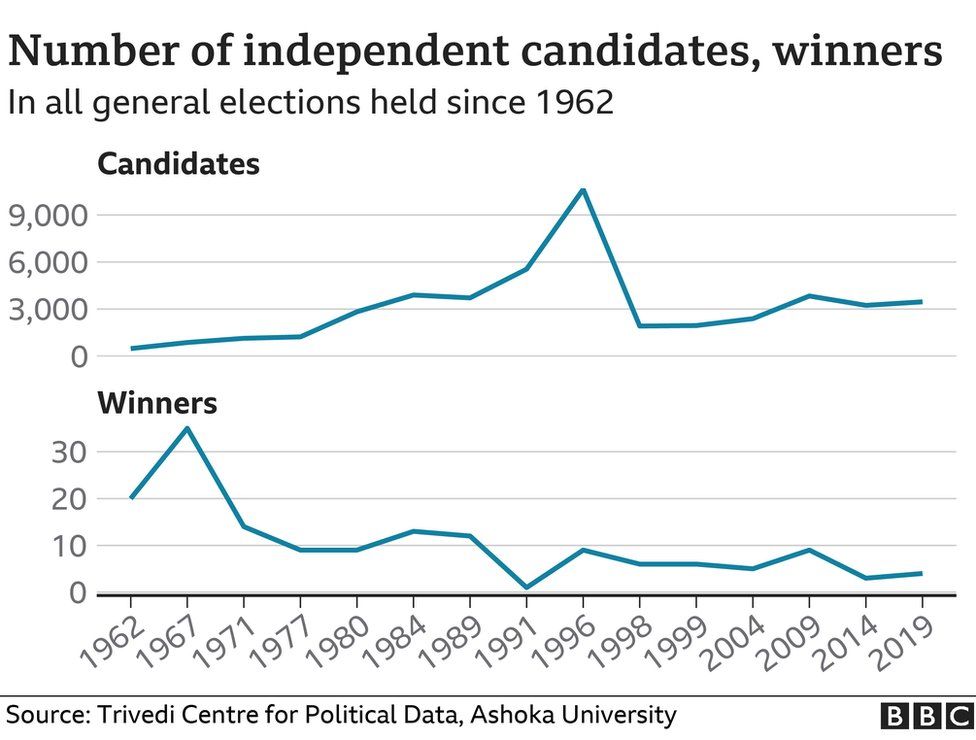
Jagdeep Chhokar, co-founder of election watchdog Association for Democratic Reforms (ADR), says 69 "registered unrecognised parties" - those which have not secured enough percentage of votes to be recognised as a state party or those which have never contested elections - submitted details to the Election Commission.
But the vote share details of only 43 parties were available to assess their eligibility to receive electoral bonds.
Only one of the 43 parties was found eligible to receive donations. Several parties had not contested a single election.
"Clearly the bonds have made it easier for people to launder money by making donations to parties," Mr Chhokar says. All is not rosy with increased political participation in India's raucous democracy.



No comments